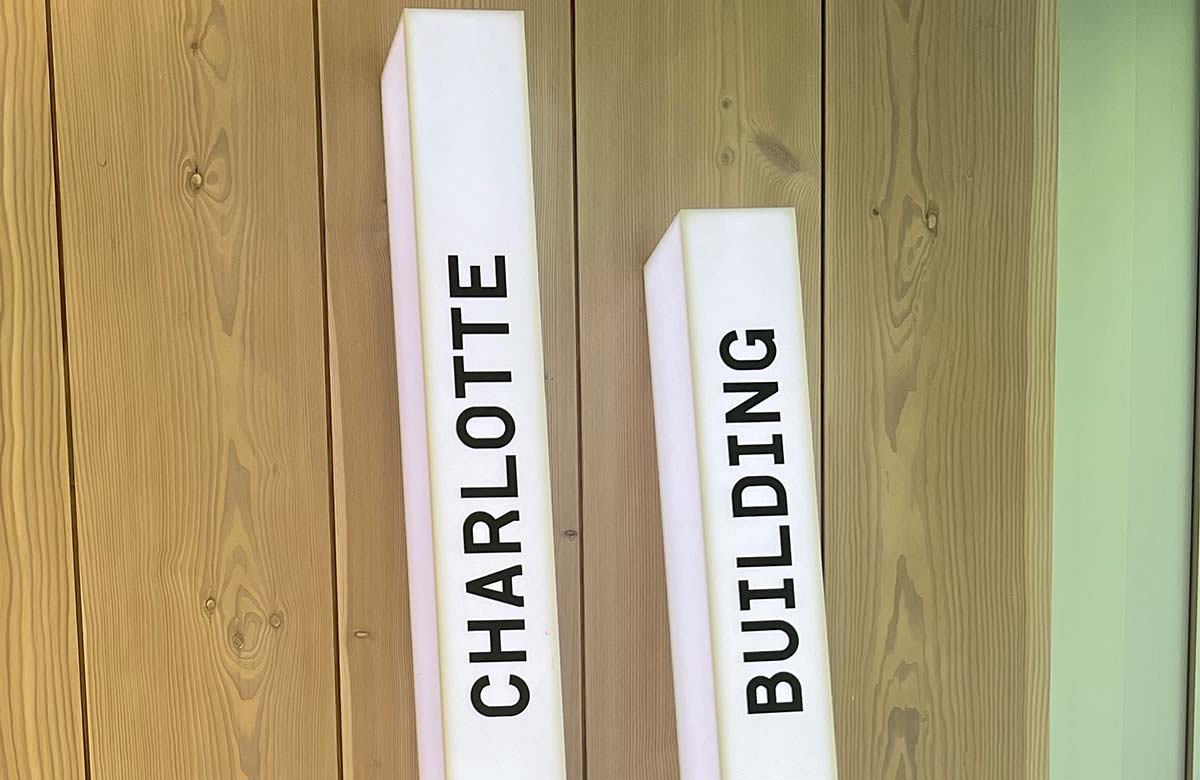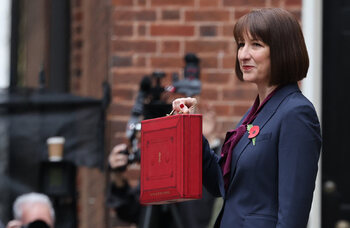Moore Kingston Smith: making sure a producer’s tax return isn’t a drama
With a century of experience in entertainment taxes and based in the West End, accountancy firm Moore Kingston Smith has been helping theatre producers of all scales with their returns and to make the most out of those all-important small margins
Theatre is one of the only industries that’s actually keen to do its taxes.
“For most people, getting the tax return in is a necessary evil,” says Mark Twum-Ampofo, head of theatre and partner at leading accountancy firm Moore Kingston Smith. “But in theatre, because of the Theatre Tax Relief scheme, the sooner you get your accounts in, the sooner you get a cheque from HMRC. People want to do it as soon as they can, and that’s quite refreshing.”
Unlike most accountancy firms, Moore Kingston Smith has a team that specialises in the theatre sector, with clients ranging from commercial producers to subsidised venues to cast and crew.
“It’s relatively unusual to have a team of people who just work on theatre,” says Twum-Ampofo. “What we really specialise in is making complicated, technical things such as tax and finance understandable to people who are not specialists.”
Moore Kingston Smith was founded in 1923 and, more than a century later, is a renowned accountancy firm working across the UK. Its headquarters are in the heart of the West End, and the company has always had a specialism in media, especially film and TV.
Around eight years ago, Twum-Ampofo says: “We realised that the theatre industry, which like film and TV has people’s creative talent at its core, would sit really well with those other businesses.” Now, he leads a team of around 25 people providing a range of services at the heart of the theatre sector.
One of those services is production accounting, with Twum-Ampofo’s colleagues providing finance or payroll support to shows across the UK, including around a third of all current West End shows.
“We pay the bills, we pay the cast and crew, we produce the running accounts, we calculate the royalties, we return capital to investors. Often my job involves reading through royalty agreements, running accounts, and everything else involved in the production, and trying to work out how we can translate this weird and wonderful structure someone’s come up with into pounds and pence and payments.”
Continues...
Theatre finances are particularly complex, but Twum-Ampofo and his team know exactly how to break down these complexities into something understandable. “I spend a lot of time just having conversations with people, trying to understand what their challenges are, trying to simplify complex financial points and working out whether there’s a way of making things work better. I try to make life easier so that they can focus on the stuff that they do best.”
And that personable approach not only helps producers and productions succeed; it also gives Twum-Ampofo huge job satisfaction. “In a former life, I sometimes despaired of the fact that you produced management accounts and then had a feeling that they went into a drawer somewhere and were never read or seen again. In theatre, people are very interested in those numbers. Because the margins are so small, it’s really important that everyone involved looks closely at the numbers. They might be tweaking an accrual by just £100 – those small numbers really matter. It’s nice to know that your work is going somewhere.”
The team has a particular expertise in the government’s Theatre Tax Relief scheme, established in 2014, which, Twum-Ampofo says, has been a game changer for the industry.
“We do a lot of advisory work around the tax credit, helping productions come up with an estimate of how much their claim might be, and how that will impact on the length of time it will take for a production to make its money back. If there are any HMRC inquiries into those claims, we support them in that, too.”
Similar initiatives already existed in the film and television worlds, but following lobbying from the theatre sector, the government set up a system to provide relief against capital gains tax for eligible expenditure on theatre productions, originally set at 20%, or 25% for touring productions.
It works, he explains, a bit like cashback: you spend the money on putting on a show, and further down the line – when tax returns are submitted – you get money back from the government. “You have to spend the cash in order to get the tax credit back, so what it doesn’t do is reduce the capitalisation cost of a show. What it does is make it more likely that you recoup your money, and that you recoup it faster, because there is this additional source of funding.”
During the Covid pandemic lockdowns the rates of tax relief for theatre were temporarily raised, which was a huge help, but there was a lot of worry about how long those uplifted rates would last. Then in the government’s most recent budget, the chancellor announced that higher rates of 40% and (for touring productions) 45% would be made permanent.
“The sector has been doing a massive amount of work to demonstrate the need for that change. It’s been really important to encourage government to recognise the value of theatre – both its intrinsic value and its value to the wider hospitality sector, because if you’re going to see a show, you’ll probably have a bite to eat beforehand, and you might have a drink afterwards. If you’ve come into London especially, you might stay overnight. It’s got all of those knock-on benefits.”
We specialise in making tax and finance understandable to people who are not specialists
The tax relief system often means the difference between a show getting over the line or not. “I’m fortunate enough to be privy to the numbers in the accounts for a large number of shows. If the credit had dropped back down to 20% and 25% I think a lot of those shows would have struggled and fewer new projects would get off the ground. Undoubtedly the credit delivers in terms of increasing theatrical activity in the UK.”
That’s partly due to recent high inflation, which has added hugely to the cost of mounting and running a show. “No one begrudges pay rises for cast and crew, but on top of that, utility costs are going up and other suppliers also have higher input prices. That feeds through into a more expensive show to build and a more expensive show to run.”
He and his colleagues understand the challenges facing the theatre sector, and he loves the idiosyncrasies of that world. “I get an opportunity to work with an absolutely fantastic group of people,” he enthuses. “Businesses in the sector support and encourage and work with each other, and I get to experience a tiny bit of that, which makes it a really enjoyable area to work in.”
And the best bit? When the numbers have been crunched, Twum-Ampofo gets to see the result on stage. “That’s where you get a real sense of pride. We’ve seen everything as numbers, payments and receipts, and now it’s turned into something real and fantastic. It’s certainly much better than seeing the latest widget from a widget manufacturer.”
Most Read
Across The Stage this weekYour subscription helps ensure our journalism can continue
Invest in The Stage today with a subscription starting at just £5.99







